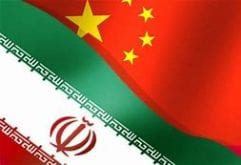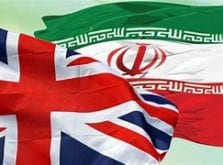Guardian.com – When Mikhal Dekel was a child she would sometimes wake up at night to find her father, Hannan, in the kitchen. “He would be sifting through the garbage can, salvaging a bit of cottage cheese stuck to the container. It used to repel me: my father, a cat pawing through the trash. There was an obsessive, almost mechanical quality to his movements that frightened me.” She didn’t associate Hannan, who served in the Israeli air force for almost 50 years, with the Holocaust.
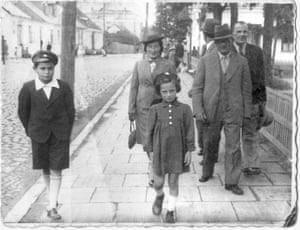
Her father had told her no tales of murderous concentration camps or welcome liberation. Dekel only knew that Hannan, along with his sister Rivka and their cousin Naomi, had been part of a wartime mission by the World Zionist Organisation to rescue Polish Jewish children. They had arrived in what was then British-controlled Palestine in 1943 via Iran and were known as the Tehran Children because Iran had provided their final staging post.
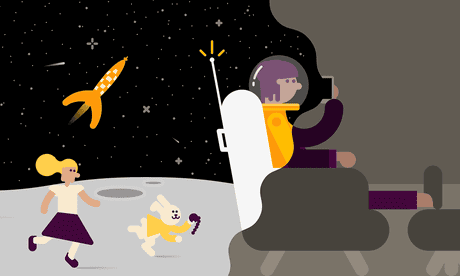
Sign up for Bookmarks: discover new books in our weekly email
Read more
It wasn’t until 2007, when Dekel, by then an academic in New York, met the writer Salar Abdoh that she learned more. Abdoh knew the story of the Tehran Children from an Iranian perspective and regarded his country’s role in their rescue as evidence that his culture was not intrinsically antisemitic. Dekel asked him to collaborate on retracing her father’s journey. Working together seemed to her to be a way to “overcome vexed oppositions like Jew/Christian/Muslim, a way of sidestepping the deep and deepening impasse between Israel and the Islamic Republic”.
Based on their almost eight years of research into Dekel’s father’s convoluted 13,000-mile journey, the book draws on archives in Russia, Poland and Central Asia that have only been opened up in the last decade, as well as records kept in Israel, the UK and by the Red Cross. The result is a book that is both a highly personal, journalistic memoir and a valuable addition to Holocaust history. Dekel traces her family’s journey as they fled east from their home town in Poland, just ahead of the German invasion in 1939.
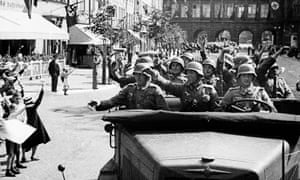
When the Soviet authorities forced Polish citizens in 1940 to work in the gulags in Siberia, the family nearly starved before being shipped on to Uzbekistan. They were part of a wave of famished Polish refugees in Tashkent and Samarkand, where conditions soon deteriorated with outbreaks of typhus and other diseases. No one knows how many thousands died at each staging post, but when Hannan’s parents were told in late 1942 that there was a chance for unaccompanied minors to go to Iran (then under British rule), they seized it. Trains crammed with soldiers under the command of the Polish government in exile were being sent to strengthen the British armies in the Middle East. Hannan, his sister and cousin joined 1,000 Jewish children on the journey.
But Iran itself proved no easy haven. Up to 33,000 Polish soldiers and 11,000 refugees were now under the purview of the British army. The initial warm welcome from Iran’s Jewish population in August 1942 turned sour when supplies ran low and winter threatened. Local newspapers denounced the new arrivals as “parasites of the allies”. Graffiti on Tehran’s walls read “all of Persia is hungry as it watches the Poles and the British eat its bread”. Fearful of a local uprising, the British shipped the Polish Catholic refugees on to New Zealand, India and Africa; some 861 Polish Jewish children, including Dekel’s father, were sent on to British Palestine.
Greater status was initially given to the Tehran Children, perceived as pioneer settlers, than their traumatised parents
No nation comes out with an unblemished record; once settled in a kibbutz in 1943, Hannan and his sister pleaded with the British authorities to allow their mother, who had survived, to join them. It wasn’t until 1949 that they were reunited in newly established Israel. Dekel recalls the stigma then attached to the traumatised European Jews; she describes them as having a “muted aura of shame and anxiety in the Israel of my youth”. It was easier to be proud of her father. The Tehran Children had been given far higher status because their rescue by the Jewish agency had been a great achievement; their arrival in February 1943 had been greeted with cheering crowds and jubilant newsreels.
At every stage of her family’s odyssey, Dekel uncovers reports and witness accounts of corruption and mistreatment. Yet her book doesn’t just cast light on an overlooked chapter in the fate of Europe’s Jews in the second world war. It lets us see how challenging it is trying to tell that story fairly. When the records and testimonies uncover overtly antisemitic discrimination by the Polish, Dekel’s formerly helpful Polish archivist becomes defensive. Dekel’s original plan to co-author the book with Abdoh is abandoned as the story becomes more about her father’s journey through Russia and Central Asia than his time in Iran. Tehran Children tackles the difficulties of recounting history from the perspective of today’s fluctuating political orthodoxy.
What makes Dekel’s study so valuable is not just its assiduous detailing of one family’s fate during the second world war, but how it also makes us reflect on our current era, with its mass migrations of desperate people fleeing conflict and hardship only to meet inflamed nativism and the desire to shift responsibility for their fate from one country on to the next.
• Tehran Children: A Holocaust Refugee Odyssey by Mikhal Dekel is published by WW Norton & Co (£19.99)
• A caption on this review was amended to clarify that Gdansk was not part of Poland in 1939; it was known as Danzig and the population was majority German.
 Shabtabnews In this dark night, I have lost my way – Arise from a corner, oh you the star of guidance.
Shabtabnews In this dark night, I have lost my way – Arise from a corner, oh you the star of guidance.
